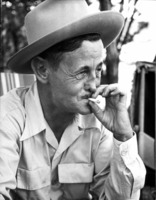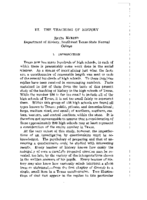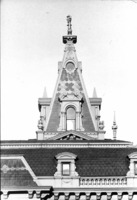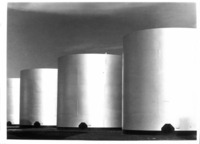Texas
Image

Image

The Teaching of History
Description
Paper presented in the Conference Upon Problems of Educational Administration in Texas, Austin, TX.
Max Winkler oral history interview
Description
Max Winkler talks about how he got started in the CIA, primarily through working on a program dedicated to eradicating the spread of foot and mouth disease in Mexico in the 1940s and 1950s. Mr. Winkler describes his adventures and exploits, spending much of the interview discussing his role in training Cuban nationals to overthrow Castro during the disastrous Bay of Pigs in Cuba in the early 1960s. He details how Fidel Castro took control of Cuba and instituted communism, due in large part to Hugo Chavez, whom Mr. Winkler interviewed. Along with describing the trainees, Winkler recalls how the CIA treated number of imprisoned defectors. Mr. Winkler also shares how the U.S. worked with President Ydigoras of Guatemala during this period. Eventually, Mr. Winkler and his wife (also a CIA agent) left the Foreign Service and moved to New Braunfels. Mr. Winkler administered LBJ's Head Start Program in Central Texas, the first in the U.S., before becoming principal of Seele Elementary.
Image

Ralph Houston oral history interview
Description
Dr. Houston talks about growing up in Denton County, attending college at UNT and teaching in Big Spring, Texas. He discusses studying for his PhD at UT-Austin and being recruited by Deacon Wright to teach at SWTSTC in the 1930s. He describes campus, the English department and its staff, and his experiences as a professor, head of the English department, and Dean of Liberal and Fine Arts during his time at the university (1937-1970). He also relates stories about Dr. McCrocklin and the university's participation in the AAUP and other academic organizations.
Image

James Harrell oral history interview
Description
James Harrell talks about growing up in Waco, studying in Dallas, and working in the movie business. He relays information about how Texas has grown to better support actors and the film industry, and outlines present trends in professional acting. Along with recalling changes he has seen in the university, he also discusses the evolution of the drama department and the new Speech and Drama Building.
Image

Margaret Fields oral history interview
Description
Margaret Fields talks about her early life in New Braunfels and life during the Great Depression. She describes the university campus and the schooling she received at Texas State in the 1930s and 1940s. She mentions places like Old Main; people such as C.E. Evans, Mary Brogdon, Leland Derrick, and John Flowers; and her experiences living off-campus. She discusses the various teaching jobs she took in Comal County and Medina County as well as her work with the state vocational rehabilitation department in Austin and other companies in Houston. She outlines how it all led her to her current job at the Sophienburg Museum in New Braunfels.
Image

Betty Dressen oral history interview
Description
Betty Dressen discusses growing up on a farm. She shares her memories of "going into town" to Lockhart with her dad once a month. She shares the responsibilities that come with that kind of lifestyle, such as curing meat, making cheese, canning, and other aspects including wells and growing her garden.
Image

Gus and Betty Dressen oral history interview
Description
Gus and Betty Dressen discuss their German family heritage and growing up near Uhland, Texas. Along with describing what it was like to grow up on a farm, the couple share the responsibilities that come with that kind of lifestyle, such as taking care of animals, growing corn and sugar cane, and other aspects including having a blacksmith shop. They also talk about how life back then is different from now, such as paved roads, cars, electricity, and going into town.

